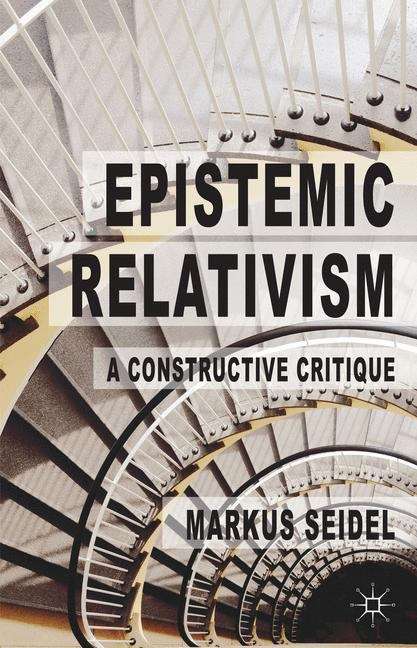Epistemic Relativism
By:
Sign Up Now!
Already a Member? Log In
You must be logged into Bookshare to access this title.
Learn about membership options,
or view our freely available titles.
- Synopsis
- Are our beliefs justified only relatively to a specific culture or society? Is it possible to give reasons for the superiority of our scientific, epistemic methods? Markus Seidel sets out to answer these questions in his critique of epistemic relativism. Focusing on the work of the most prominent, explicitly relativist position in the sociology of scientific knowledge so-called 'Edinburgh relativism' or the 'Strong Programme', he scrutinizes the key arguments for epistemic relativism from a philosophical perspective: underdetermination and norm-circularity. His main negative result is that these arguments fall short of establishing epistemic relativism. Despite arguing for epistemic absolutism, Seidel aims to provide an account of non-relative justification that nevertheless integrates the basic, correct intuition of the epistemic relativist. His main positive result is that the epistemic absolutist can very well accept the idea that people using different standards of justification can be equally justified in holding their beliefs: Rational disagreement, he maintains, is perfectly possible. The book provides a detailed critique of relativism in the sociology of scientific knowledge and beyond. With its constructive part it aims at making conciliatory steps in a highly embittered discussion between sociology and philosophy of science. "
- Copyright:
- 2014
Book Details
- Book Quality:
- Publisher Quality
- ISBN-13:
- 9781137377906
- Publisher:
- Palgrave Macmillan
- Date of Addition:
- 03/25/17
- Copyrighted By:
- Springer
- Adult content:
- No
- Language:
- English
- Has Image Descriptions:
- No
- Categories:
- Nonfiction, Philosophy
- Submitted By:
- Bookshare Staff
- Usage Restrictions:
- This is a copyrighted book.
